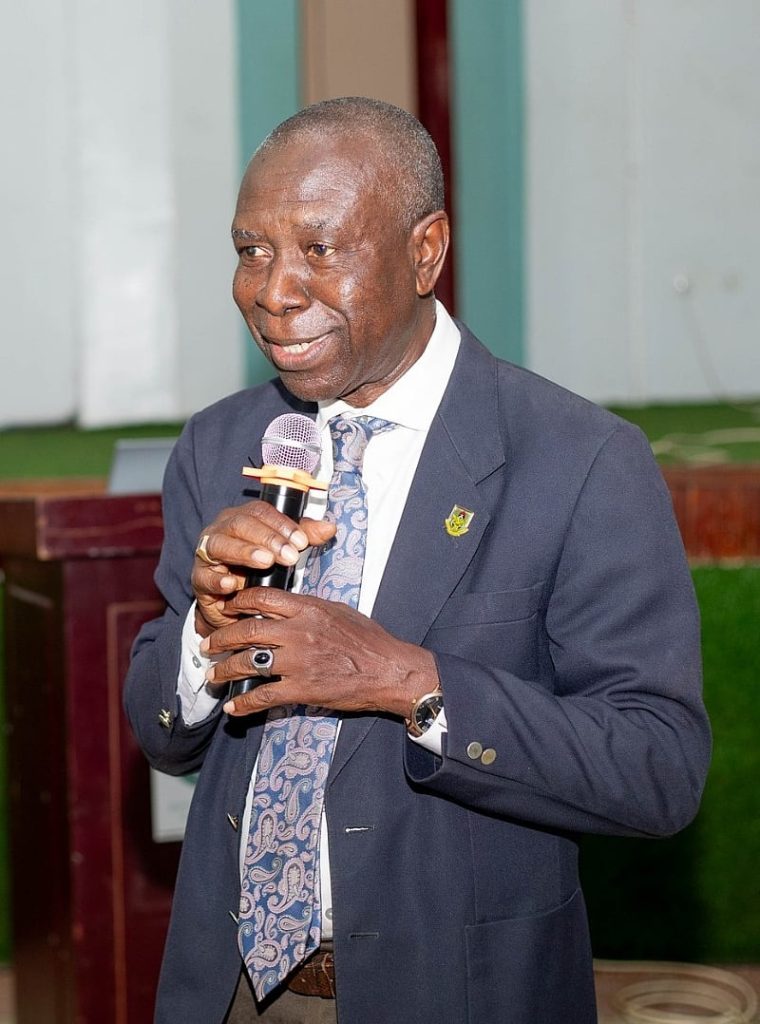The Sunyani Technical University (STU) recently held a crucial one-day workshop focused on bolstering the grant writing capabilities of its Grantsmanship Committee members. The training aimed to equip participants with the necessary skills and knowledge to craft compelling and competitive research grant proposals, ultimately increasing their chances of securing funding and enhancing the university’s research output. This initiative underscores STU’s commitment to strengthening its research profile and contributing meaningfully to national development.
The workshop featured a presentation by Prof. Paul Sarfo-Mensah, a seasoned grant recipient with extensive experience in both local and international funding landscapes. He offered valuable insights into the intricacies of grant writing, defining a grant as financial assistance provided by public institutions, charitable organizations, or specialized funding bodies to individuals or institutions for projects that yield public benefit. He emphasized the importance of aligning grant proposals with specific outcomes and measurable deliverables, underscoring the need for clear objectives and robust evaluation plans. Prof. Sarfo-Mensah also highlighted the abundant opportunities available through grants and consultancy work, encouraging participants to actively pursue these avenues for research funding and professional development. While acknowledging these opportunities, he also critiqued the Ghanaian government’s limited financial support for university research, particularly in addressing critical national concerns like illegal mining (galamsey). This critique highlights the need for increased government investment in research and development to tackle pressing societal challenges.
Prof. Samuel Awuah-Nyamekye, Chairman of the STU Governing Council, emphasized the strategic importance of grants in driving university development. He articulated his commitment to enhancing STU’s success rate in securing research grants, recognizing their crucial role in fueling the university’s growth and fostering the professional advancement of its faculty. His vision to elevate STU to a position of prominence, both nationally and internationally, resonated strongly with the workshop participants. This commitment signals a proactive approach to securing external funding and underscores the university’s ambition to become a leading research institution.
Prof. Awuah-Nyamekye’s commitment extends beyond grant writing. He outlined plans for further faculty development initiatives, including training on academic publishing, highlighting the university’s dedication to enhancing its research output and visibility. He also pledged support for increasing the number of full professors at STU, addressing the current imbalance with only around twelve associate professors. This proactive approach to faculty development demonstrates a commitment to building a strong academic core and nurturing a thriving research environment.
Ing. Prof. Kwadwo Adinkrah-Appiah, the Vice-Chancellor of STU, acknowledged the university’s current position relative to other technical universities in securing competitive grants. This candid assessment underlines the institution’s understanding of the existing challenges and the need for strategic intervention. He reaffirmed STU’s ongoing efforts to strengthen staff capacity in grant proposal writing, recognizing this as a pivotal step toward improving the university’s funding prospects and elevating its research profile in the coming years. This commitment to continuous improvement reflects the university’s proactive stance on addressing its weaknesses and strengthening its competitive edge in the research arena.
The workshop serves as a critical first step in STU’s broader strategy to enhance its research capabilities and secure more external funding. By equipping faculty with the necessary skills and knowledge to craft compelling grant proposals, the university aims to increase its competitiveness in attracting research funding. This will not only support individual research projects but also contribute to the overall growth and development of the university as a leading research institution. Furthermore, the focus on addressing national challenges through research aligns with STU’s commitment to contributing meaningfully to societal progress. The commitment expressed by the university’s leadership, coupled with the proactive approach to faculty development, underscores a strong institutional dedication to achieving these ambitious goals.














